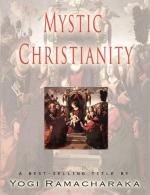Jesus stated positively that John the Baptist was “Elias,” whose return had been predicted by Malachi (4:5). Jesus stated this twice, positively, i.e., “This is Elijah that is to come” (Matt. 11:14); and again, “But I say unto you that Elijah is come already, but they knew him not, but did unto him whatsoever they would.... Then understood the disciples that he spoke unto them of John the Baptist.” (Matt. 17:12-13.) The Mystics point out that Jesus saw clearly the fact that John was Elijah re-incarnated, although John had denied this fact, owing to his lack of memory of his past incarnation. Jesus the Master saw clearly that which John the Forerunner had failed to perceive concerning himself. The plainly perceptible characteristics of Elijah reappearing in John bear out the twice-repeated, positive assertion of the Master that John the Baptist was the re-incarnated Elijah.
And this surely is sufficient authority for Christians to accept the doctrine of Re-birth as having a place in the Church Teachings. But still, the orthodox churchmen murmur “He meant something else!” There are none so blind as those who refuse to see.
Another notable instance of the recognition of the doctrine by Jesus and His disciples occurs in the case of “the man born blind.” It may be well to quote the story.
“And as he passed by he saw a man blind from his birth. And his disciples asked him, saying, ’Rabbi, who sinned, this man or his parents, that he should be born blind?’ Jesus answered, ‘Neither did this man sin nor his parents.’” (John 9:1-3.)
Surely there can be no mistake about the meaning of this question, “Who did sin, this man or his parents?”—for how could a man sin before his birth, unless he had lived in a previous incarnation? And the answer of Jesus simply states that the man was born blind neither from the sins of a past life, nor from those of his parents, but from a third cause. Had the idea of re-incarnation been repugnant to the teachings, would not He have denounced it to His disciples? Does not the fact that His disciples asked Him the question show that they were in the habit of discoursing the problems of Re-birth and Karma with Him, and receiving instructions and answers to questions propounded to Him along these lines?
There are many other passages of the New Testament which go to prove the familiarity of the disciples and followers of Jesus with the doctrine of Re-birth, but we prefer to pass on to a consideration of the writings of the Early Christian Fathers in order to show what they thought and taught regarding the matter of Re-birth and Karma.
Among the great authorities and writers in the Early Church, Origen stands out pre-eminently as a great light. Let us quote from a leading writer, regarding this man and his teachings:




